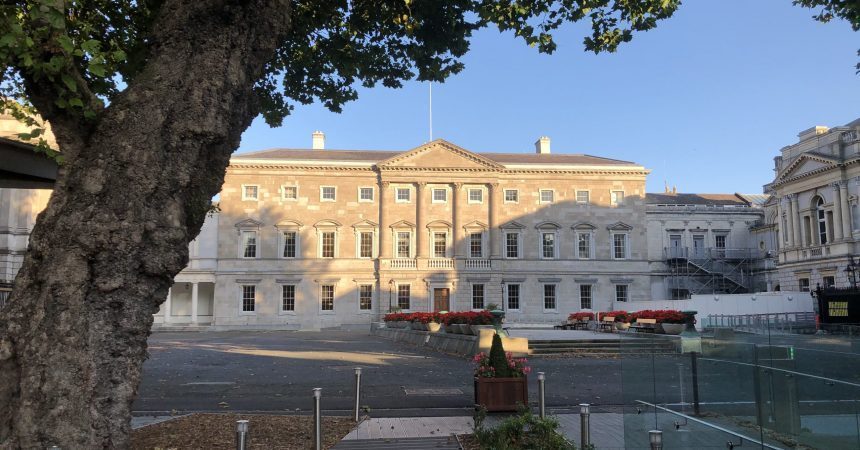
Religious education, sex education, and the separation of powers under the Constitution
The Constitution addresses the rights of parents differently in relation to religious education and sex education of their children.
- The executive can shape policy with regard to the content of religious, moral, intellectual, physical and social education under Article 42.1, as long as they do so in line with the wishes of parents.
- But the oireachtas, and not the executive, is directly responsible for protecting the explicit right to not attend religious education under article 44.2.4.
- In practice, the executive deals with both rights, and the executive and the oireachtas both ignore the separation of powers under Article 15.2.1 of the Constitution with regard to this issue.
Under Article 42.1 of the Constitution, the state is obliged to respect the inalienable right of all parents in relation to the religious and moral, intellectual, physical and social education of their children. Sex Education comes under social education. The High Court said that religious education under Article 42.1 is concerned with the teaching of doctrine, apologetics, religious history and comparative religions. The Supreme Court said that under Article 42.1 the state is obliged not to interfere in the rights of parents (Burke v Minister for Education Supreme Court 2022). They also found that the right of parents in relation to the religious education of their children under Article 42.1 must be read in the context of Article 44.,2.4 (Campaign to Separate Church and State – Supreme Court 1998).
Under article 44.2.4 of the constitution, the Oireachtas is obliged to ensure the state aid does not affect prejudicially the right of students to attend school in receipt of public funds and not attend religious instruction. Religious instruction under Article 44.2.4 is religious teaching. ‘Teagasc creidimh’ simply means religious teaching. Under Article 25.4.6 of the Constitution the Irish version of the Constitution takes precedence. The Supreme Court found that Article 42.1 must be read in the context of Article 44.2.4.
An important difference between Article 42.1 and Article 44.2.4 is that, under Article 42.1, the executive is responsible and, under Article 44.2.4, the Oireachtas has a duty to ensure that state aid does not affect prejudicially the right of any student to attend a school in receipt of public funds and not attend religious instruction.
Because of the separation of powers under the Constitution, the executive/Department of Education cannot decide what is or is not religious instruction or claim that ‘not attend’ means opt out, not participate or withdraw. Nor have they the constitutional power to decide that Article 44.2.4 refers to instruction according to the rites of a particular religion when the text of the Article doesn’t say that and neither has the Supreme Court.
In putting together legislation to reflect Article 42 and Article 44.2.4 of the Constitution, the Oireachtas decided to treat intellectual, physical and social education in the same way as the right to not attend religious instruction/teaching under article 44.2.4. Section 30.2(e) of the Education Act 1998 gives students the right to ‘not attend’ anything that is against the conscience of their parents.
In practice, this has meant that the right to not attend religious instruction under article 44.2.4 is ignored. The Oireachtas ignores its duty to ensure that state funding does not affect prejudicially the right of students to attend a school in receipt of public funding and not attend religious instruction. The executive is interfering in the rights of parents in relation to their children not attending religious education, and also redefining the Constitutional right to not attend religious instruction into ‘opt out’, ‘not participate’ or ‘withdraw’. Thus the executive and the oireachtas are ignoring the separation of powers under Article 15.2.1 of the Constitution.
Article 42.1
The State acknowledges that the primary and natural educator of the child is the Family and guarantees to respect the inalienable right and duty of parents to provide, according to their means, for the religious and moral, intellectual, physical and social education of their children.
Article 44.2.4
Legislation providing State aid for schools shall not discriminate between schools under the management of different religious denominations, nor be such as to affect prejudicially the right of any child to attend a school receiving public money without attending religious instruction at that school.
Section 30 -2 (e) Education Act 1998 – The Minister –
shall not require any student to attend instruction in any subject which is contrary to the conscience of the parent of the student or in the case of a student who has reached the age of 18 years, the student.







0 Comments
No comments!
There are no comments yet, but you can be first to comment this article.